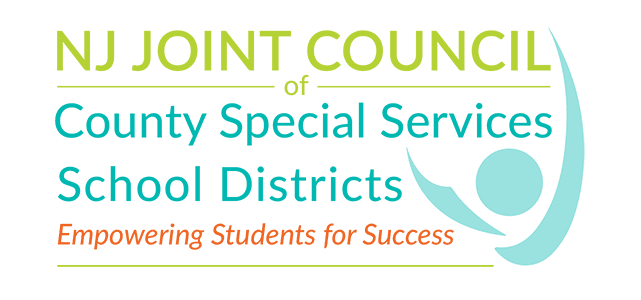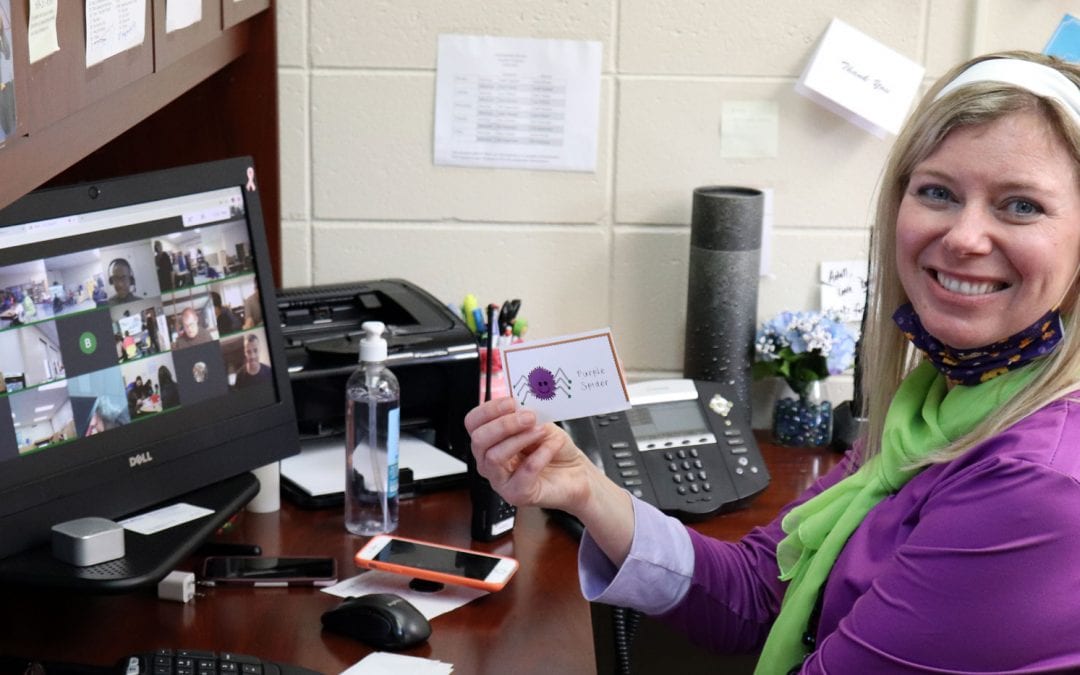Although May is recognized as Mental Health Awareness Month, the eight districts that make up New Jersey’s Joint Council of County Special Services School Districts have prioritized Social and Emotional Learning (SEL) as part of their year-round programming. While school officials believe SEL should always be part of the academic experience, they have redoubled efforts throughout the pandemic to address a range of factors impacting the mental health of their students, families, and school staff.
Supporting Students During a Year of Changes & Challenges
When schools in New Jersey quickly moved to remote learning in March 2020, it was especially jarring for students with disabilities in the county special services school districts; many thrive on having a routine and depend on the services provided within their schools. The districts jumped into action, finding ways to introduce additional mental health and social-emotional support. That heightened level of support continues, even as many students have returned to in-person learning. The educators realize when students feel safe, relaxed, and connected to their teachers, therapists, and classmates, they are better positioned to succeed.
The Gloucester County Special Services School District (GCSSSD) has introduced students and parents to the virtual Calm Room created by the Center for Regional Education Support Services (CRESS), which provides opportunities for shared educational programs and services for the county. The site features videos, SEL activities, behavioral strategies, and other interactive elements to ensure the sensory, emotional, and physical needs of each student are addressed.
“This year, we have faced many challenges as we aimed to best meet the needs of students, staff, and parents at a time when support is needed more than ever,” said Cindy Fornes, LCSW, who serves as an occupational therapist and assistive technology specialist for GCSSSD. “My focus has been meeting those needs in ways that are both creative and effective by providing tools to help them through these tough times. The Calm Room for GCSSSD was developed to be a support for anyone who may need to take a break, reset or regulate any time of the day or in any setting.”
Additionally, GCSSSD has students participate in a daily reflective social and emotional review with their teacher, as well as social problem-solving skills with their speech therapists. Virtual assemblies like school-wide BINGO and a wacky science show help students reconnect and infuse some levity into the school days, which helps everyone relax.
Burlington County Special Services School District (BCSSSD) has adopted the “Zones of Regulation” this school year, which helps students learn skills to consciously regulate their actions, leading to increased control and problem-solving abilities. “One of my missions since becoming the superintendent nearly five years ago was to promote social and emotional well-being,” said Dr. Christopher Nagy. “It’s always been an important component for a positive learning environment, and the pandemic has just highlighted how truly crucial it is for our students to be able to adapt and connect.”
This year, classroom staff and therapists strived to weave social-emotional learning into their classrooms and students’ routines. From warming up for the day ahead to assessing students’ feelings, students and staff alike embrace the Zones curriculum. The activities look different from school to school, but some classes engage as a group at least once every day, whether that’s through breathing and stretching, listening to calming music with and without visuals, taking brain breaks, or following a guided meditation.
BCSSSD’s Westampton Campus was recently named a 2021 Honorable Mention School of Character by Character.org for its social-emotional programming. BCSSSD has also been selected by the Foundation for Educational Administration as one of 26 schools in the state to be a part of its Healing-Centered Engagement Initiative. The grant-funded program will include training and coaching to help teachers, administrators, and staff introduce new techniques to help a child counteract the effects of Adverse Childhood Experiences (ACES.)
Recognizing just how much focus is needed on mental health, the Cape May County Special Services School District has created a new position for the upcoming school year – a social skills and wellness teacher, who will help address student anxiety, mental health, and school phobia. This teacher will have weekly classes with students in grades K-12 and work directly with teachers, case managers, and therapists to help address issues and promote health and wellness for students and staff.
In the meantime, CMCSSSD case managers and support staff have been vital in connecting with students and their families to provide support and community resources. They have provided school-based counseling and resources and referrals to community mental health providers, as needed.
“This year has been very challenging since COVID changed our way of life,” said Jamie Moscony, Assistant Superintendent of CMCSSSD. “As a team, we recognize that we need to be able to provide extra support for the mental health and social-emotional wellness of our staff and students; we also recognize it won’t be a quick fix. That’s why we’re already looking ahead and planning for the upcoming school year.”
At Atlantic County Special Services School District (ACSSSD), school officials believe the strict safety protocols and precautionary measures put in place this year have helped alleviate some of the stress and concern of students and their families.
“For our families, this was important so that they felt comfortable sending their children back into school during a pandemic,” explained ACSSSD Child Study Team Supervisor Jennifer Cruickshank. “To help those families who still have their children at home, we are offering an in-person extended school year program so that there is an opportunity to slowly transition students back to the school building.”
Extending Supports Beyond the Student
Districts are mindful that many families need mental health support as well during a year when they have been asked to do even more to support their child’s learning and development. Bergen County Special Services School District has worked through its CAPE Resources Center to help parents navigate and connect with different resources available for their child in the community. The free service has been around for more than a decade and points families to accessible and appropriate services and resources, but also connects them with others who are facing similar struggles. When the pandemic struck, the monthly meetings moved online.
“We’ve always had a core group of parents participating, but it’s expanded during the pandemic,” said Linda Wieseneck, the director of CAPE Resource Center. “Sometimes parents just need to talk. They talk about the joys of raising a child with developmental and other disabilities, and also the pain and the challenges they go through, too.”
Wieseneck says the pandemic has actually allowed them to connect more with families than during previous, “normal” school years. “Parents have opened up more and have shared more personal issues around food insecurity, finances, and mental health struggles. Requests for these kinds of resources weren’t something we were used to seeing, but through extended outreach happening because of COVID, parents really opened up to our case managers and leaned on them for support.”
Burlington County Special Services School District has also instituted check-ins to each home by teachers, administrators, related services staff, and child study team members to ensure that not just students, but also families, are ok. The goal is to help them understand a support system exists and encourage them to use it.
Districts have also set aside time and resources to care for their staff members, who have no doubt worked in overdrive since the start of the pandemic.
GCSSSD instituted “Coffee Talk” for their staff members at Bankbridge Elementary School, where social workers facilitate sessions two days a week to bring concerns and challenges into the open. Staff meetings conclude with coping strategies to try, and district-wide students and staff are recognized weekly with positive praise for going above and beyond. They district also instituted a walking program to get staff members out from behind their keyboards and moving to help ward off depressio
CMCSSSD has established a virtual staff support group, which meets two times a week and allows staff members to have the time and opportunity to process traumatic events, re-establish connections with co-workers, and obtain resources. Through Teacher Advisory Committees (TAC), educators and staff are given opportunities to learn and reflect on social-emotional competencies both monthly and weekly.
“Special services school districts are special places, because they are full of empathetic people,” said Dr. Howard Lerner, Superintendent of Bergen County Special Services School District and Chair of the NJ Joint Council of County Special Services School Districts. “This became increasingly more evident over this past year. I am so proud of how all our teams, across all eight districts, worked to take care of their students, their students’ families, and their colleagues. They sprung into action when mental health and wellness support was needed most, and much of what was implemented will endure. We know there is a correlation between academic progress and mental health, so our districts will only grow stronger from what we put in place over the past year.”

